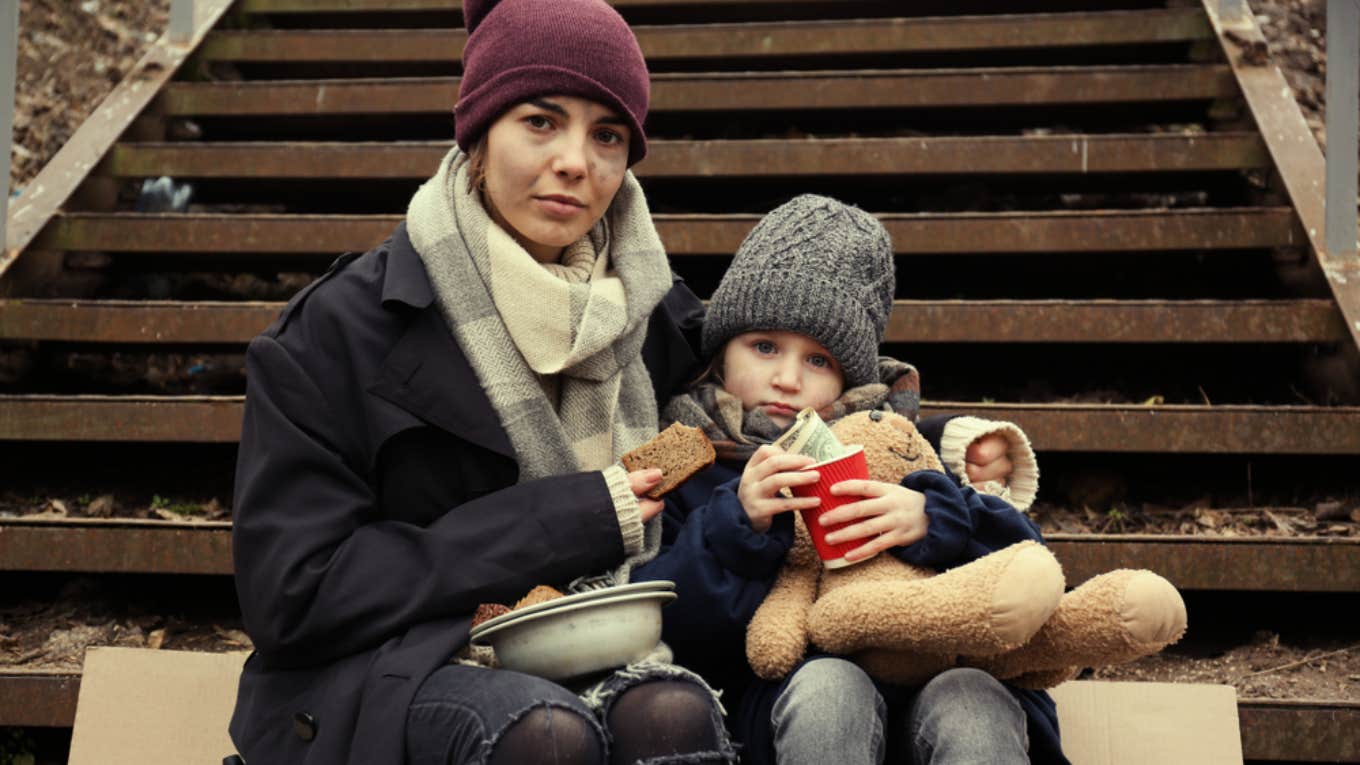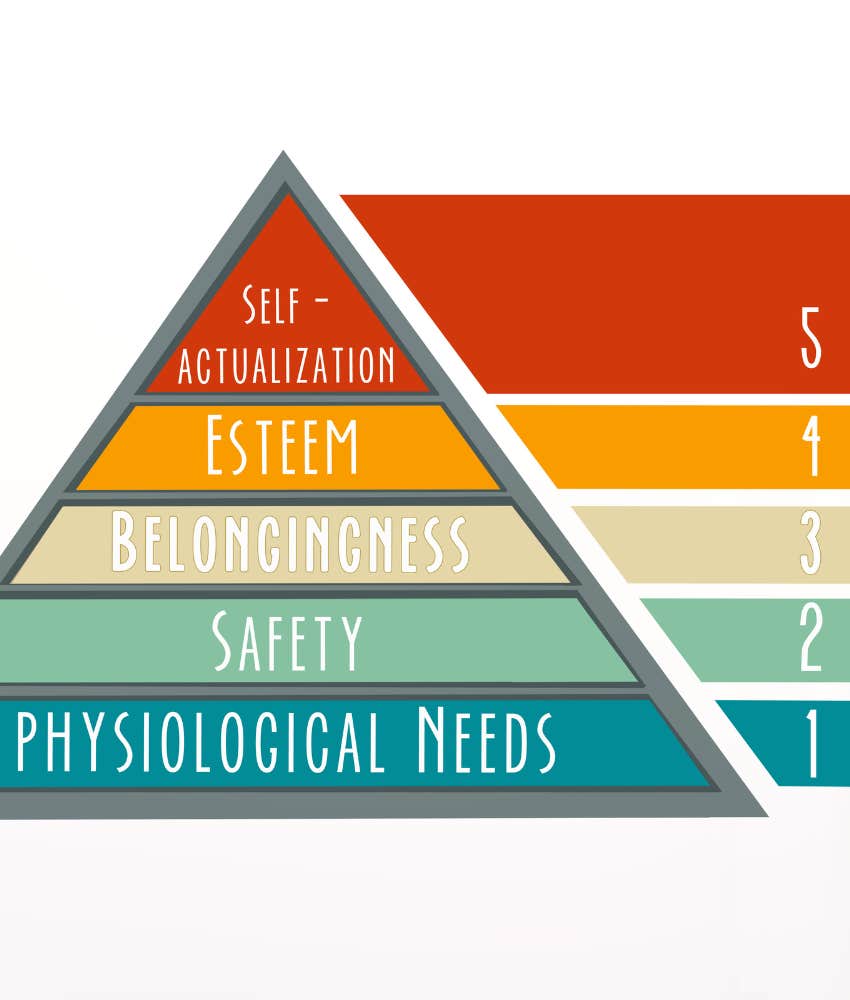Childless Man Says 'Love Isn't Enough' Of A Reason For Poor People To Have Kids — 'Love Doesn't Pay The Bills'
"You should have gotten yourself a goldfish."
 New Africa / Shutterstock
New Africa / Shutterstock A man is fiercely calling out those who believe that love alone is enough for parents to give their children.
He argues that while love is undoubtedly a crucial component of raising children, it is not the sole factor required for successful parenting and that children need much more than just love to be adequately cared for.
If parents could not provide those things, then they should never have had children.
The man believes that those living in poverty should not be having children since there is so much they will be unable to provide for them.
Nate (@neurodivergent_nate), who does not have children himself, shared his controversial beliefs in a series of TikTok videos and explained how parents living in poverty are orchestrating their children’s downfall.
“Love doesn’t pay the bills, doesn’t feed your kids, doesn’t give them clothes, and doesn’t put a roof over their head,” Nate said. “Love means absolutely [expletive] if children’s basic needs are not being met.”
He uses Maslow’s hierarchy of needs, a theory proposed by psychologist Abraham Maslow in 1943, which categorizes human needs into a hierarchical structure. The hierarchy consists of five levels, arranged in a pyramid, with each level representing a different category of needs.
The five levels include self-actualization, self-esteem, love and belonging, safety and security, and psychological needs.
According to the theory, children’s safety, security, and psychological needs must always come before love and feeling of belonging, since they consist of health, shelter, employment, food, water, clothing, and sleep.
 Photo: astel design / Shutterstock
Photo: astel design / Shutterstock
“If children do not have basic shelter, access to food and water, the children do not feel safe in their own environment because they don’t know when their next meal will come, they cannot experience love and acceptance,” Nate says.
“This is basic common sense and also foundational child development knowledge.”
Nate also called out parents who believe that they’re going above and beyond by giving their children love and a roof over their heads.
“You realize that providing a roof over a child’s head is not even the minimal requirement for meeting a child’s needs, right?” he asserted in another video.
“Even if you give them food, is it healthy food? Are you giving your kids full attention and helping them with homework and teaching them life skills?”
He called parents who simply drop their children off at school, feed them, and shelter them instead of engaging with them, helping them with their responsibilities, and spoiling them from time to time, “trashy.”
“You should have gotten yourself a goldfish,” he said.
He explained why the phrase some parents love to pull out of their pocket, “After everything I’ve done for you!” is just harmful. “It is inappropriate to put your financial stresses on your child because you decided to have them and then put the pressure on them as if they owe you for doing your job as a parent,” he said.
Nate advised those living in poverty who want children to consider the reality that they’d be bringing children into.
“What person who's in their right mindset would decide to knowingly bring a child into poverty when they’re gonna experience food insecurity and housing along with other traumas?” he noted.
He also pointed out the fact that those who want to adopt children have to pass a series of strict home visits, and interviews and be prepared with recommendations to determine if they are fit enough to bring a child into their home.
Being financially stable is a big concern that many adoption agencies look for in adoptive parents.
Some people accused Nate of promoting eugenics, the belief or practice aimed at improving the genetic quality of the human population through selective reproduction.
Eugenics is based on the idea that certain desirable traits should be promoted and passed on to future generations, while undesirable traits should be prevented or eliminated.
The idea of eugenics has been criticized by some people since they believe that it sends the message that those who are not wealthy should not be having children.
However, Nate argued that it should be “common sense” for people who are living in poverty not to have children until they are financially comfortable and able to do so.
“Why would you bring a child into poverty who’s gonna knowingly suffer because you don’t have access to all of the resources needed to successfully raise them as a proper child?” he asks.
Some people who admitted to growing up in poverty believed that Nate had some valid points.
“Trust me as a child who grew up in poverty, love is not enough. We went winters without heat or electricity and summers without running water,” one TikTok user commented.
“I grew up with 10 kids in a two-bedroom apartment. My mom loved all of us, but we needed food, shoes, clothing, and attention,” another user shared.
“As a former social worker for the foster care population, I co-sign this,” another user wrote.
While some people might find Nate’s opinions offensive, the truth is, that raising children is expensive.
Those who grow up with limited resources often find themselves with inadequate access to education, which increases the likelihood of having physical and mental health issues, being socially isolated from their peers, and being stigmatized.
According to the Children’s Bureau of Southern California, there are approximately 15 million children in the United States living in low-income families.
 Photo: Slava Samusevich / Shutterstock
Photo: Slava Samusevich / Shutterstock
For some individuals, having children may provide a sense of companionship, fulfillment, and family connection, despite financial challenges.
However, the desire to have children is not always a valid reason for having them.
Children are more than just cute little playthings. They are human beings who require medical care, food on the table, weather-appropriate clothing on their backs, an education, and more than most of us could ever anticipate.
Even if you will undoubtedly love your children, you need to ask yourself if you have the means to care for them in every aspect of their lives.
Children require much more than just love alone to survive.
While love is a fundamental aspect of parenting, children require a holistic approach to their care and upbringing that addresses their diverse needs across physical, emotional, cognitive, and social dimensions.
Megan Quinn is a writer at YourTango who covers entertainment and news, self, love, and relationships.

